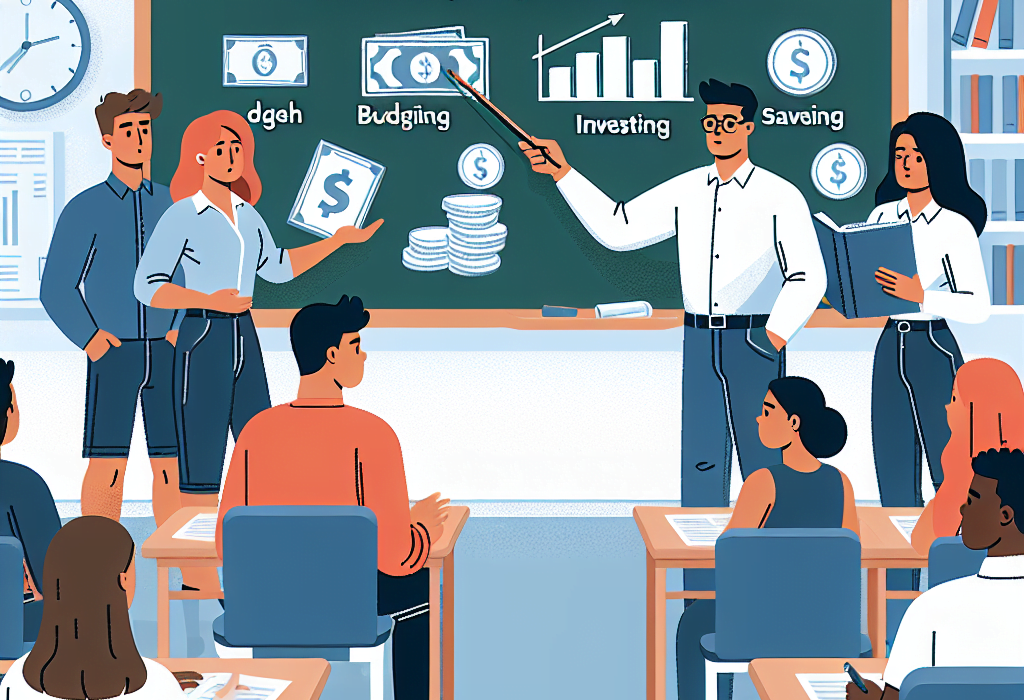Financial literacy is a vital skill that is often overlooked in traditional school curriculums. It is the ability to understand and effectively use various financial skills, including personal financial management, budgeting, and investing. Despite its importance, young adults are often unprepared to manage their finances and make sound financial decisions. Hence, including financial literacy in student education should be a priority. It will equip them with the knowledge necessary to manage money effectively, avoid financial pitfalls, and grow their wealth in the long term.
The Importance of Financial Literacy
Financial literacy forms the foundation for a prosperous and secure life. It helps people to make educated decisions about different financial areas such as investing, insurance, real estate, budgeting, or retirement planning. Financially literate individuals are superior planners and have a better chance at reaching their financial goals and achieving financial stability. They are good at saving and are far less likely to overspend or become heavily indebted, creating a brighter financial future.
Why It Should Be a Priority in Student Education
Implementing financial literacy in student education will create an empowering narrative around typically intimidating topics like money, investments, and savings. Students will grow up understanding how money works, how to handle, invest, and grow it, ultimately giving them a strong foundation to build their financial wealth.
Practical Life Skills
Learning about finance is a practical skill that students will use throughout their lives. It teaches students the value of money, how to draw up a budget and stick to it, the concept of interest, and the importance of saving and investing money. By understanding these concepts at a young age, they will be prepared to make good financial decisions in the future.
An early education in financial literacy will arm children with the knowledge necessary to prevent debilitating debt. They will understand the importance of consistently saving money, the repercussions of non-payment, and the dangers of using credit irresponsibly. This education can lead to better habits and decision-making processes as they grow older.
Future Planning
A solid understanding of personal finance from a young age can also encourage children to start planning for the future early. This includes preparing for unexpected expenses, being able to afford college, and even planning for retirement. Essentially, being financially literate helps pave the way for a secure financial future.
Reduced Financial Anxiety
Financial literacy can help reduce money-related stress by allowing students to feel more confident about their financial situation. Understanding how to manage and grow money can provide peace of mind and overall improve students’ quality of life.
Conclusion
In conclusion, financial literacy plays a crucial role in shaping the potential for individual stability and overall economic health. Making it a priority in student education can empower students to make informed and effective decisions regarding their finances. Equipping students with financial knowledge sets them up for a life of financial health, thus contributing to their overall well-being and the economy’s health.
FAQs
Q1: Why is financial literacy important for students?
A1: Financial literacy is important for students as it equips them with the knowledge to make sound financial decisions. It helps them understand the value of money, the importance of saving, how to manage their finances and prevent debt, and how to plan for their future.
Q2: When should financial education start?
A2: Financial education should start as early as possible. Young children can begin learning about the concept of money, and as they grow older, the learning can become more detailed and comprehensive.
Q3: How does financial literacy benefit individual students?
A3: Financial literacy gives students a comprehensive understanding of money management, helping them make informed financial decisions, avoid falling into debt, and plan effectively for the future.
Q4: How can educators incorporate financial literacy into their curricula?
A4: Educators might incorporate financial literacy into their curriculum by integrating it into regular subjects like Math or Social Studies, or they could run a separate class on Personal Finance. They could use practical examples and activities to bring the concepts to life.
Q5: Can financial literacy impact economic growth?
A5: Indeed, financial literacy can influence economic growth. When individuals are financially literate, they are more likely to save and invest, leading to overall economic development.













